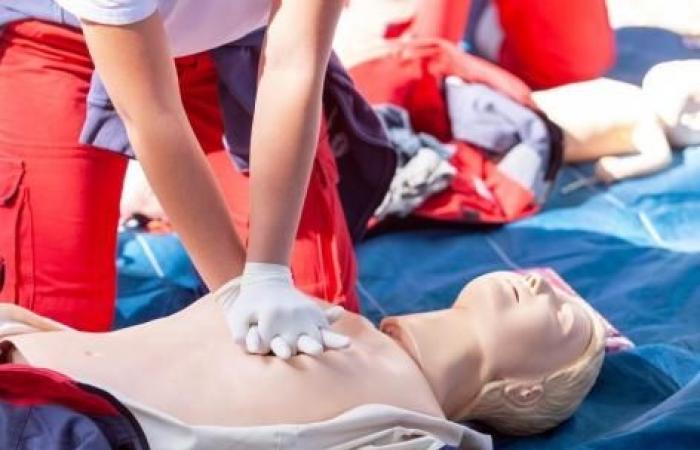THE ESSENTIAL
- The sooner a victim of cardiac arrest receives first aid from a witness, the greater their chances of survival.
- People who received cardiopulmonary resuscitation within two minutes of an out-of-hospital cardiac arrest had an 81% greater chance of surviving to hospital discharge.
- For researchers, it is essential to train the population in life-saving actions.
In Norway, Austria and Germany, 8 out of 10 people are trained in first aid, while in France, only 40% of the population has learned them, according to the Red Cross. This low rate is worrying in view of the results of a study which will be presented at the scientific symposium on resuscitation of the American Heart Association on November 16 and 17.
Indeed, American work shows that the sooner a witness intervenes during a cardiac arrest, the better the chances of saving the victim's life and protecting their brain functions. And this until 10 minutes after the incident.
Cardiac massage: the intervention increases the chances of survival
To more precisely assess the chances of survival of people whose hearts have stopped, researchers analyzed the files of nearly 200,000 victims of cardiac arrest outside the hospital. These incidents took place in the United States from 2013 to 2022. Analyzes showed that patients who had a cardiac arrest at home or in public have a better chance of survival and less impact on their brain, if they have benefited from cardiopulmonary resuscitation from a non-professional first aider up to ten minutes after the incident.
And the sooner the massage begins, the less severe the complications. In fact, patients who received cardiopulmonary resuscitation within two minutes of their out-of-hospital cardiac arrest had an 81% greater chance of leaving the hospital and a 95% greater chance of not having a significant brain injury compared to to people who have not benefited from life-saving actions. The rates were 19% and 22%, respectively, for people who received first aid within 10 minutes. Which remains better results than victims who did not benefit from cardiopulmonary resuscitation before treatment by health professionals. In fact, only 12% of them were able to leave the hospital and 9% survived without significant brain damage or major disabilities.
Cardiac arrest: act as quickly as possible
For the researchers, their work shows that it is important to train people in first aid procedures. “These results highlight the critical importance of rapid response in an emergency. They suggest that we need to focus on teaching more people how to perform cardiopulmonary resuscitation, and we also need to focus on ways to get help more quickly to people in cardiac arrest.”says Dr. Evan O'Keefe of Saint Luke's Mid America Heart Institute and the University of Missouri-Kansas City.
The first author of the study adds in his press release: “This could include more widespread cardiopulmonary resuscitation training programs, as well as greater public access to automated external defibrillators and improved dispatch systems.”
The authors assure that responsiveness can save lives. “Time is of the essence when cardiac arrest occurs, and delayed interventions can be as ineffective as no intervention. Community education and empowerment are essential for us to save lives.”adds Dr. Anezi Uzendu of the American Heart Association.






